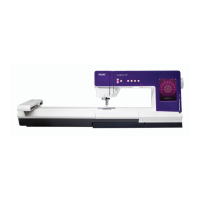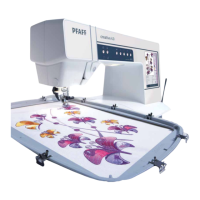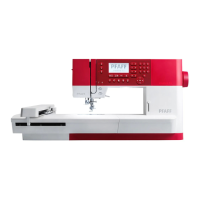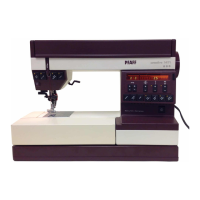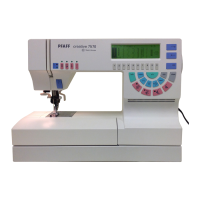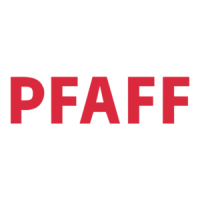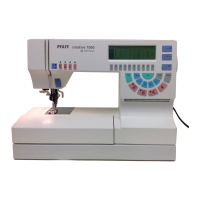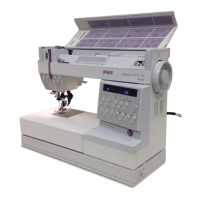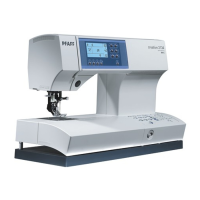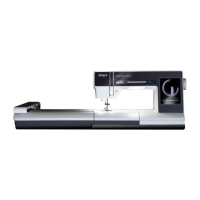2-35
Technical section, general
If you set the differential feed to 2.0 the
front feed dog moves at twice the speed
of the rear feed dog. This means that the
front feed dog moves twice as much fabric
as the rear feed dog. This gathers the
fabric.
In this way, you can prevent the seam
from stretching when you work with knits
such as jersey or cable knits. The seam will
remain fl at (A).
However, you can also use it to achieve
fashionable effects such as the gathered
effect with very fi ne fabrics (B).
The following table includes notes on setting the differential feed. Always test your
setting fi rst on a piece of scrap fabric.
Type of fabric / effect Differential feed setting
gather
<2> <1,5>
normal
<1>
stretch
<0,5>
Very light fabrics: silk, satin, poplin, taffeta, linings.
••
Normal fabrics: light and medium-heavy cottons, fi ne cords, thermal-
wear
•
Light knitwear: jerseys, polo fabrics, cut-pile pullovers, tricot, fi ne
knitwear and gathered fabrics.
••
Heavy knitwear: sweatshirt fl eece, heavy gathered fabrics, heavy
knitwear
•
Stretch “lettuce edge” effect: medium and light knitwear, jerseys,
knitwear, ruffl ed sleeve and collar edges, skirt hems, dense stitch
lengths.
•
Gathering: ruffl ing light fabrics and lace, seam allowances for curves,
arches on blouses, shirts, round pockets, fl aps, stretching or gentle
ruffl ing of sleeves, sleeve widths for cuffs or gathered fabrics.
•
B
A
